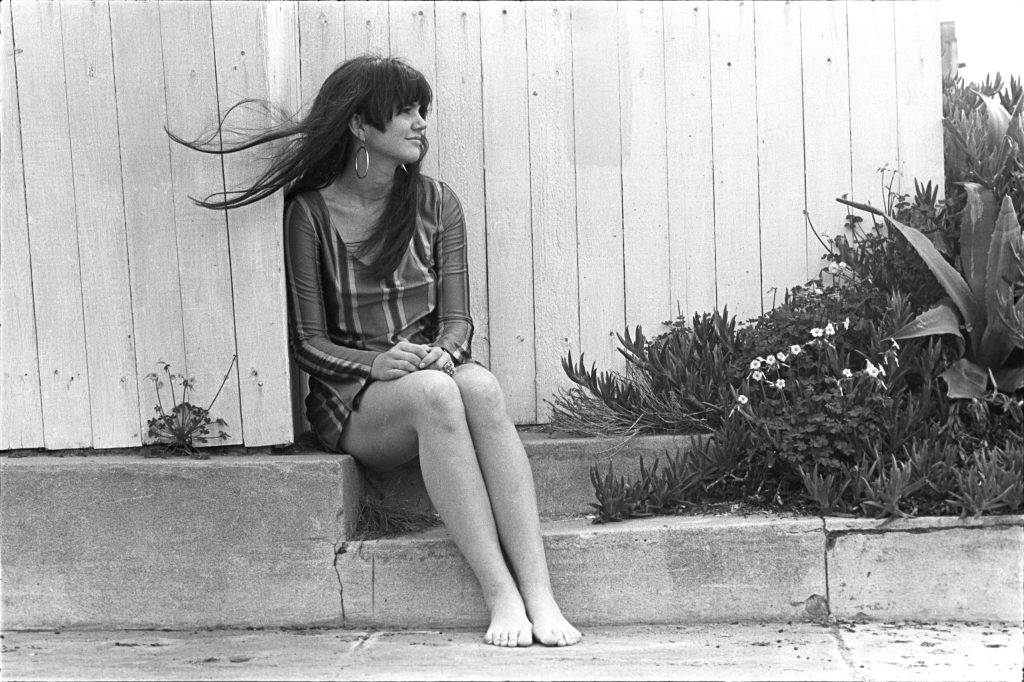
A Nostalgic Journey Through Love and Longing: Linda Ronstadt’s “Heat Wave / Love Is a Rose”
In the golden era of the 1970s, when Linda Ronstadt‘s voice echoed through the radios and record players across America, she was more than just a singer; she was a storyteller. Her rendition of “Heat Wave” combined with “Love Is a Rose” is a poignant reminder of her ability to transport listeners to another time and place, weaving tales of love, longing, and the bittersweet nature of human relationships.
Released in 1975 as part of her album Prisoner in Disguise, “Heat Wave / Love Is a Rose” showcased Ronstadt’s versatility and depth as an artist. The single climbed the charts, reaching impressive positions that reflected her popularity at the time. “Heat Wave,” originally written by the legendary Motown team Holland-Dozier-Holland and first performed by Martha and the Vandellas in 1963, found new life through Ronstadt’s passionate delivery. The song’s pulsating rhythm and vibrant energy captured the essence of youthful ardor and irresistible attraction.
“Love Is a Rose,” on the other hand, was penned by Neil Young and offered a contrasting yet complementary sentiment. Its gentle melody and introspective lyrics invite listeners to ponder the fragility of love. The juxtaposition of these two songs within a single release highlighted Ronstadt’s unique ability to traverse different musical landscapes while maintaining a cohesive narrative thread.
The story behind “Heat Wave” is one rooted in the history of Motown—a label that redefined popular music in America. With its infectious beat and exuberant spirit, the song became an anthem for those caught up in the whirlwind of passionate romance. Ronstadt’s interpretation breathed new life into this classic, infusing it with her distinct style and emotional intensity. Her voice, both powerful and tender, conveyed the excitement and urgency of newfound love, making it resonate with audiences old and young alike.
In contrast, “Love Is a Rose” delves into the complexities of love with poetic grace. Neil Young’s lyrics draw on imagery that evokes both beauty and pain, capturing the duality inherent in romantic relationships. The metaphor of love as a rose—beautiful yet delicate, alluring yet thorny—speaks to the universal experience of navigating affection’s highs and lows. Ronstadt’s rendition is imbued with a sense of wistfulness that touches the soul, inviting listeners to reflect on their own experiences of love lost and found.
For those who lived through the 1970s, Linda Ronstadt‘s music is more than just a soundtrack to their youth; it is a repository of memories and emotions. Her ability to channel deep feeling into every note creates an intimate connection between artist and audience. As her voice soars through “Heat Wave” or gently caresses “Love Is a Rose,” listeners are transported back to moments when love felt all-consuming or when its absence left an indelible mark on their hearts.
The impact of “Heat Wave / Love Is a Rose” extends beyond its initial chart success. It serves as a testament to Ronstadt’s enduring legacy as one of America’s most cherished vocalists. Her interpretations continue to resonate with new generations, proving that truly great music transcends time.
In revisiting these songs today, one cannot help but be enveloped in nostalgia—a longing for days gone by when life seemed simpler yet infinitely more complex in its emotional landscape. For older listeners especially, these tracks may evoke cherished memories or perhaps stir reflections on how their understanding of love has evolved over time.
Ultimately, Linda Ronstadt‘s Prisoner in Disguise album—and particularly “Heat Wave / Love Is a Rose”—stands as a monument to her artistry: her ability not only to entertain but also to move us profoundly through song. Whether you’re revisiting these tracks or discovering them for the first time, let yourself be carried away by her voice—a true gift that continues to echo through the corridors of musical history.
